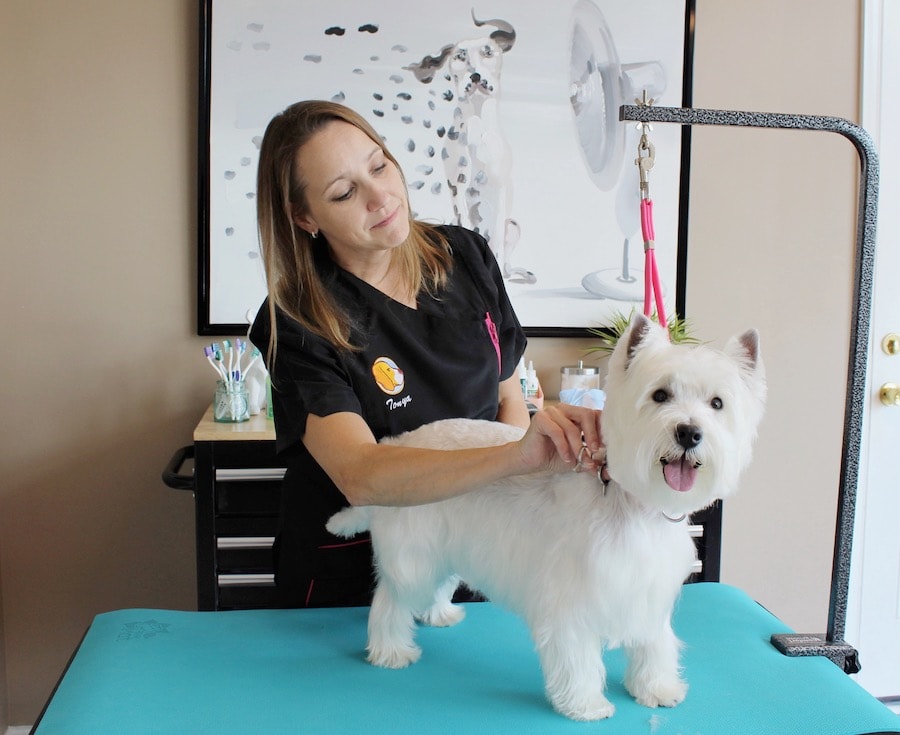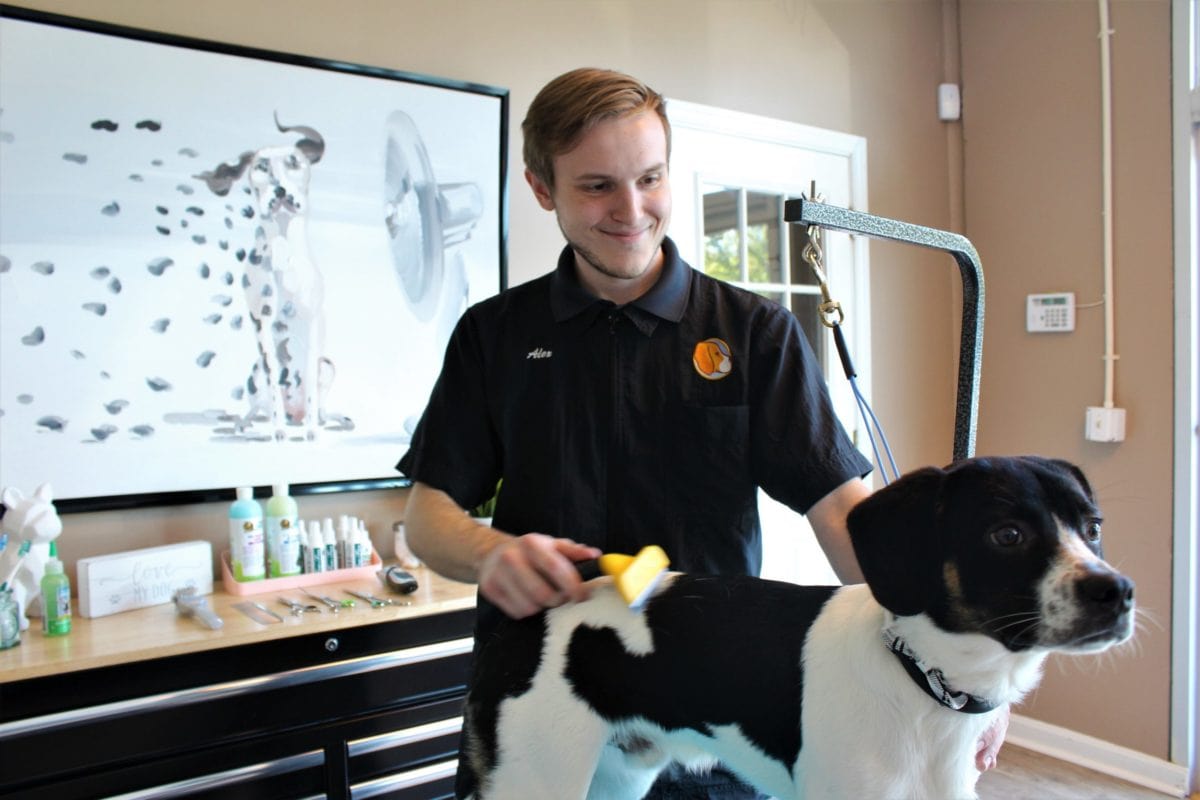5 Tips for Heartworm Prevention for Happy, Healthy Dogs
Hey there, fellow dog lovers — we’re here to talk about heartworm prevention for dogs. We know that taking care of your best friend is your top priority, but some pet health concerns may seem overblown, right? We get it. With so much information out there, it’s hard to know what to take seriously. But this is one health threat that your dog cannot afford for you to ignore.

Don’t feel bad. You’re not alone! It’s a common misconception that heartworms only affect specific types of dogs or those in certain regions. But the truth is, every dog in every state in the nation can be at risk. We understand that health concerns for your pup can be overwhelming, but we’re here to help. In this article, we’ll give you five tips to prevent heartworms in dogs, so your best friend can live their best life. Let’s dig in!
Heartworm Disease in Dogs
Heartworm disease is a deadly threat to dogs, cats, ferrets, wolves, coyotes, and foxes. It is caused by a parasitic worm called Dirofilaria immitis, commonly known as heartworm or dog heartworm. They can grow over a foot in length and live and breed in the host animal’s bloodstream. Heartworm disease attacks the heart, lungs, and other vital organs, resulting in a painful death. No vaccine exists, and the only available medical treatment works on dogs alone. But heartworm treatment is costly, complex, and toxic to the dog. Even successful treatments leave the dog’s health permanently compromised.
Heartworm prevention is worth a ton of cure.
Tip #1 Continual Heartworm Prevention Medication
The single most critical prong of heartworm prevention for dogs is the regular and consistent use of preventative medication. This medication is like a shield that protects your pup from getting infected by heartworms. It works by killing off any baby heartworms your dog might have picked up from mosquito bites before the worms can mature and reproduce. But here’s the deal: you’ve got to be consistent with this medication. Some forms are applied monthly, and others every six or 12 months. Skipping a dose could put your dog at risk.
Heartworm prevention medication is available only by prescription, and the dosage is based on the animal’s weight. The American Heartworm Society recommends that puppies get their first dose at eight weeks of age. The medication comes in chewable pills, injections, and topical applications. Some formulas also kill fleas and ticks for more comprehensive protection. Your vet can advise you on the best protection for your furry friend.

Tip #2 Regular Heartworm Testing is Vital
With regular heartworm prevention for dogs, it is fervently hoped your best friend will never contract heartworms. It is highly unlikely that a protected dog will contract heartworms, but it can still happen. So, annual heartworm testing is essential. The sooner an infection is caught and addressed, the better your pup’s chances for recovery.
An annual veterinary checkup is the best way to maintain your dog’s health. Your vet will run a blood test to look for heartworms during the exam. It’s a small price to pay for the peace of mind your friend’s clean bill of health provides.
Tip #3: Reduce Exposure to Mosquitoes
Did you know that mosquitoes are responsible for the spread of heartworms? Yes, dogs get bitten by mosquitoes. In fact, unless baby heartworms, called microfilariae, spend some time in the digestive tract of a mosquito, they cannot mature into the infective larvae that make their home in a dog’s bloodstream. So without mosquitoes, there would be no heartworm infections!
Start keeping your yard mosquito free to prevent heartworm. The following are some steps you can take for effective mosquito control:
- Eliminate standing water (even a bottle cap full of water is an ideal breeding ground for mosquitoes).
- Cut the grass short and pick up leaf litter.
- Stop overwatering.
- Treat all water features with mosquito larvicide.
- Repair any leaky faucets, pipes, or irrigation systems.
- Employ professional mosquito control services.
Another benefit of mosquito control is that it protects your furry friends and family from other vector-borne diseases like Zika virus and Lyme disease.
#4: Keep Your Dog Healthy and Active
A healthy diet packed with omega-3 fatty acids and antioxidants will help to strengthen your dog’s immune system. So, too, will regular exercise. Great health and a strong immune system help protect your friend from heartworms by fighting any infections. This can give you more time to employ life-saving medical treatment if needed.
Tip #5: Stay Informed and Educated
Your dog needs you to stay informed about threats to their safety and health. For instance, did you know that the early symptoms of heartworm disease are easy to miss? Initially, your dog might have an occasional cough and be a bit tired after moderate activity. But as the heartworms grow and multiply, the burden on your dog also grows.
Additional information you need to know is that there is no verified natural heartworm protection available yet. And heartworm disease in dogs has been diagnosed in every state in the nation. Preventing heartworms is an important subject that is closely studied. Stay current on the latest information by following the American Heartworm Society and any information your vet provides. The Healthy Hound Playground Bpg also provides terrific information on health care for dogs.
Be Your Dog’s Best Friend and Start Heartworm Prevention Today!
If the urgency to protect your dog from heartworms slipped past you before, now is the time to get proactive. You can start practicing heartworm prevention for your dog today. It’s what we do for our best friend.
David Price is an Associate Certified Entomologist of over 12 years and working in the Pest Management industry for over 25 years. Currently, the Director of Technical Services for Mosquito Joe oversees all training development and technical support to over 170 Franchises in 38 states and Washington.
Tags:







